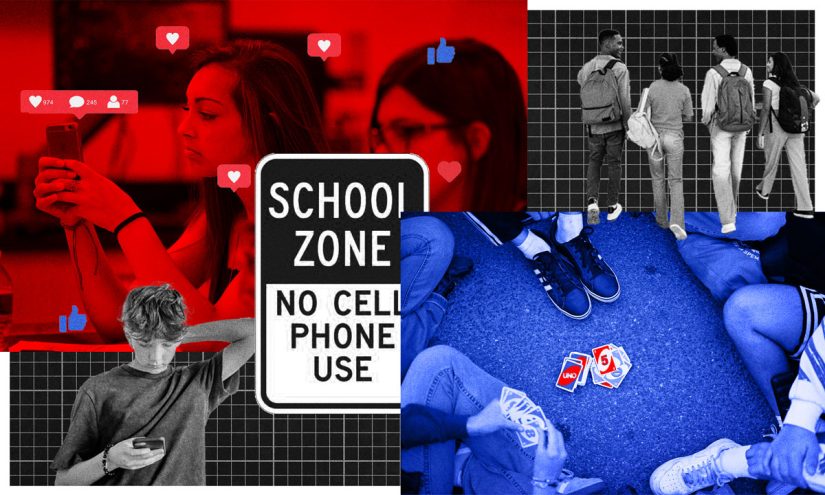New York City schools have had a long history of phone restriction policies, with an outright ban in the early 2000s that was reversed about 10 years later. Individual schools, like the ones where Corletta and Leston teach, have had the freedom to implement their own restrictions.
That will change again in the new academic year as all schools in New York state will implement a bell-to-bell ban — one of the strictest among dozens of other states that have passed similar legislation — barring students from access to personal devices that can connect to the internet for the entire school day. Schools will be required to provide storage for the devices.
But with such new policies, many being implemented for the first time this school year or in effect for less than two years, no one knows what the perfect model looks like.
Researchers are moving cautiously as they grapple with uncertainty about the effectiveness of in-school phone bans on mental health. Data yields mixed results — and there’s growing a sentiment that more has to be done outside of schools to get kids off their phones and back into the world.
A recent Pew Research survey found that nearly three quarters of Americans support restrictive phone use in schools, up six percentage points since last year — but many are also unsure how far the bans should go. About 44% of respondents supported all day bans, with others split on whether students should have access to their phones between classes or at lunch.



the core issue here is not that the modern internet and social media landscape is bad for kids, it’s that it is bad in general, for everyone! Kids are just a vulnerable population that it is easy to point to and limit access for.
We need to reject the notion that this is a business, and accept that digital spaces are a public services that shouldn’t be designed around maximizing user engagement and profitability.
Delaying when we allow large companies to destroy people’s minds with dark patterns doesn’t solve the core issues. There’s no good way to regulate this, the core failure is the nature of these services as for profit companies with no incentive but to design manipulative and addictive systems, and things won’t get better until that is dealt with.
Good point. Children have no rights and so they can be targeted for censorship with ease. The laws they’re pushing don’t just apply to algorithm driven corpo hellsites or phones. It’s a full on attack on our kids and their ability to connect on ways that are bad for those in power.
You’re also right, of course, but children (with a developing prefrontal cortex) are particularly vulnerable, and that’s borne out by magnified mental health effects from social media use. Restricting social media would have big, positive effects.
The reason for age 16 being proposed is that this gives a couple of years for parents to help support youth with managing access to social media, for example by having supportive conversations about how to manage toxic content and people.
The prefrontal cortex thing is being.g used to take away rights already. Still want to use that unscientific excuse?